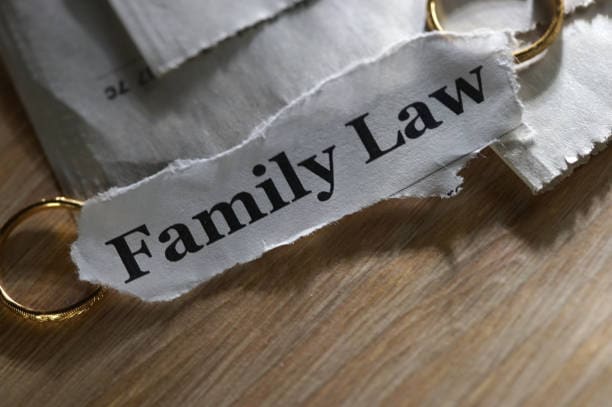Under family law, the topic of form 13 family court comes up often. What exactly is form 13 family court? Basically, form 13 family court is a financial statement that parties must fill for cases involving financial matters under family law.
Form 13 in family court is especially relevant for property settlement, spousal maintenance and child support matters. Parties must lodge the form 13 in family court if they are seeking final orders from the court.
The financial statement can be found on the Federal Circuit and Family Court of Australia’s website. Alternatively, the financial statement for Family Court of Western Australia can be found here. In this article, we discuss all relevant points in relation to form 13 in family court.
What Is A Form 13 Family Court?
As discussed above, it is a financial statement that provides courts with information regarding property, financial assets and liabilities.
Parties need to lodge this financial statement if they are seeking binding court orders. This includes for matters such as property settlement after divorce or separation, or spousal support.
They can file the statement along with their application. The financial statement is available on the Commonwealth Courts Portal.
Notably, there are important rules for form 13 in family law. These rules are outlined in Rules 13.05 of the Family Law Rules (2004). Given below are the rules:
- “A party starting or filing a response or reply to a financial case (other than Application for Consent Orders i.e. Form 11) must file a Financial Statement (Form 13) at the same time.
- If a party is aware that completion of a Form 13 will not fully discharge the duty to make full and frank disclosure, the party must also file an affidavit giving further particulars.”
Notably, “court may order a party to file an affidavit giving further particulars in relation to the party’s financial affairs.”
What is the duty to make full and frank disclosure? Read on below to find out.

Form 13 Family Court: Duty To Make Full And Frank Disclosure
The duty to make full and frank disclosure is extremely important. Hence it is necessary that all parties are aware of the meaning of “full and frank disclosure.”
Parties use a form 13 to provide complete information about their assets, liabilities, financial income and other relevant information to the Family Court as well as to the other party.
When filling out this financial statement, each party has to make frank disclosures about their assets and other financial information. This means they should provide detailed information about their earnings, interest, income, savings and any other financial resources.
Other financial resources can include:
- Superannuation
- Income
- Shares and investments
- Sole assets (like property)
- Interest in property
- Trust
- Copies of bank statements, tax returns
What happens if you fail to provide full and frank disclosure of financial assets? Rule 13.01 of the Family Law Rules (2004) states that failure to disclose information regarding financial resources is considered a contempt of court.
This means that it is considered a punishable offence. In the first instance the Court will ask the party to make a full and frank disclosure. Moreover, the court may not allow the party to use any information that they did not disclose.
The court can also dismiss the party’s case entirely. If the party fails to obey further orders related to disclosure of assets, the Court may order the party to pay for all legal costs for the other party.
In extreme cases, courts can impose fines or a term of imprisonment on the party that failed to make a full and drank disclosure, or made a false disclosure.

Change In Financial Situation
Each party has a responsibility to update or amend the statement in case their financial circumstance has changed. According to Rule 13.06 of the Family Law Rules (2004), parties must follow certain procedures in cases of amendments to Form 13.
“This rule applies if before a conciliation conference, pre-trial conference, or at the time of seeking a consent order, a party’s financial circumstances have changed significantly from the information set out in the Form 13 or affidavit filed under rule 13.05.”
This rule states that parties must file a new form 13 financial statement with all amendments and updates marked clearly at least 7 days before pre-trial or before seeking consent orders from courts.
Moreover, if parties are able to include information about the amendments and updates in 300 words or less, then they need to file an affidavit containing details about their changed financial circumstances.
Will I Need A Family Lawyer?
A family lawyer has expertise in all areas of family law including property settlement matters and spousal support or child support issues. If you require assistance when filing an application for final orders from the family court, you should seek legal advice from award-winning family lawyers.
Our lawyers can help you gather all necessary documents required to disclose your financial situations. Courts always ensure that property settlement orders are just, fair and equitable. This is why it is extremely important to provide all information carefully.
Moreover, in case you and your former spouse wish to make applications for consents orders, our experienced lawyers can provide tailored advice for both parties to reach best possible outcomes.
For more enquiries regarding form 13 in family court, please do not hesitate to contact our office.
